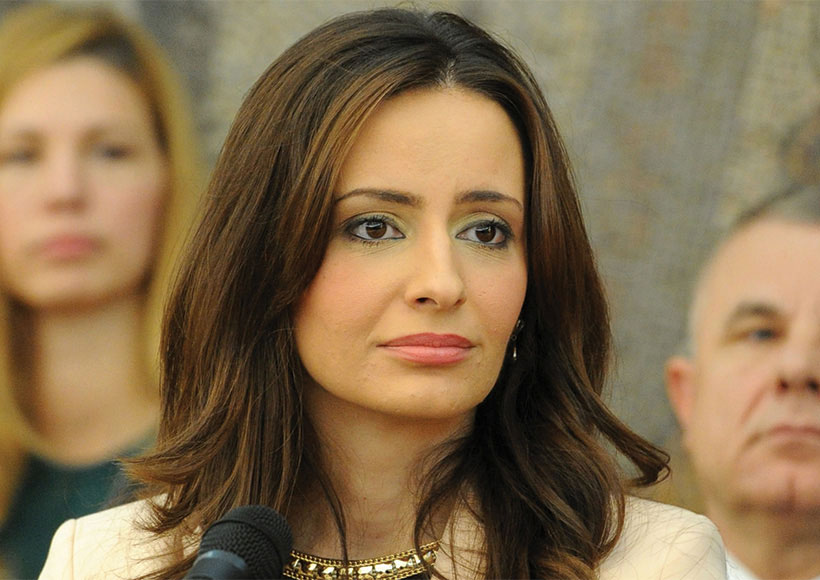// Interview: Nela Kuburovic
Minister of Justice, Republic of Serbia
//
JT: We have learned that Serbia’s Ministry of Justice is developing an Action Plan and a National Judicial Reform Strategy.
Can you tell us more about these documents, and how they will result in changes in the Serbian correctional system?
NK: Back in 2013, the Republic of Serbia adopted a National Judicial Reform Strategy for 2013-2018 and a corresponding action plan. These strategic documents provided a basis for drafting an Action Plan – Chapter 23 – that covers three large areas: the judiciary, anti-corruption and basic rights.
The quality of the implementation of that chapter’s activities and measures will impact Serbia’s progress in the negotiation process because the opening of Chapter 23 initiates the negotiations with the European Union and its closing the end of the negotiations.
The penal sanctions system’s reform is also part of the judicial reform. In every country, prisons are the third hoop in the chain of society’s protection. We consider that prisons are as important as the police or the army.
The section in the National Judicial Reform Strategy for 2013-2018, which refers to the establishment of an efficient and sustainable system of court decisions enforcement, underlines certain priorities of reforming the penal sanctions enforcement system.
Those priorities include infrastructural development or increasing and improving the housing conditions for the convicted and detained persons, respect for the human rights, an adequate health care, protection of vulnerable groups, safety, in humane conditions, further development and wider application of alternative sanctions, improving treatment efficiency, training and employing the convicted, including the introduction of a new and more advanced employee training program.
These areas have been defined in detail through the Penal Sanctions System Development Strategy up to 2020, which was drafted with the support of the OSCE Mission to Serbia, and adopted by the Serbian Government at the end of 2013.
In line with these strategic documents, the priority activities for the enforcement of penal sanctions represent a further system development towards the protection of the society against crime. This can only be achieved through a continuous improvement of the conditions under which sanctions are being affected, and the application of modern treatment on the convicted for their successful re-integration into the society and the reduction of the reoffending rate.
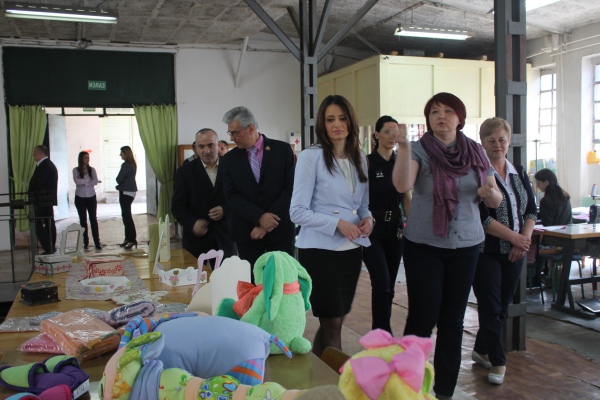
NK: Chapter 23 is the most complex and the most difficult chapter of the negotiation process with the EU. What separates Serbia from other countries who have finalised their negotiations or are still conducting them, is its entirely different way of valuing progress.
The European Commission will assess our progress by using specific parameters, such as the number of closed civil cases, final decisions in organised crime and corruption cases, the average duration of court proceedings, etc. In other words, it will not suffice to simply adopt legislation; results of the implementation of legislation will be insisted on.
Though it may be a harder path, it will ensure quality and security, because the Serbian judiciary system will have been reformed in a way that will allow its citizens to positively benefit from the reforms. Serbia has indeed chosen the path of European integration without hesitation. However, the Government’s main reason for undergoing the reforms is the well-being of the citizens.
With every activity thus far conducted in the field of judiciary and fight against organised crime and corruption – by the way in line with the Action Plan for Chapter 23 – I can confidently say that Serbia is on the right path to implementing the reforms. Even our European friends have confirmed so, through their open support at conferences, in official reports and in various projects on the judicial system development being implemented in Serbia, but funded by the EU.
Serbia will do everything in its power to meet all the conditions for the EU membership, however, one fact ought to be borne in mind: Serbia meeting those conditions also depends on the EU.
Serbia has chosen the path of European integration without hesitation, but the main reason for undergoing the reforms is the well-being of the citizens.
JT: Serbia has a high prison population rate, the system is being run over its physical capacity – about 109% occupancy – and it has been witnessing an increase in the prison population over the years, since the year 2000. (Source: PrisonStudies.org).
What are your comments on these facts?
NK: There are around 10,600 convicts and detainees in Serbian prisons, although their capacity barely exceeds the 9,800 places. At a first glance, one may conclude that Serbian prisons are overcrowded, however, if you consider everything that has been done to develop the infrastructural capacity over the past several years, you will realise that the situation, today, is drastically better than it was just over five years ago.
In the last report by the Council of Europe, Serbia was commended for its progress in increasing the prison housing capacities. Today, we can rightfully claim that we are no longer “blacklisted” because the conditions in Serbian prisons are significantly better than in some countries of the European Union. Our data support this claim: in 2011, Serbia had an average of 157.6 persons per 100 available places, presently, the ratio is 106.4 per 100.
The Ministry of Justice has been dedicating efforts to strengthen the capacities of prison-correctional institutions so that the living conditions of the convicts would be improved as per the EU standards, and the working conditions of the employees, too. In the past four years, almost every prison in Serbia underwent reconstruction or refurbishment works. Special attention was paid to the large facilities and to the special prison hospital.
Currently, refurbishment works are being performed on the existing wing of the Women’s Prison in Požarevac and another new wing is being built. Similarly, we are expecting the construction of new facilities for three more prisons to start soon and we are already implementing two large investment projects.
The construction of a new prison in Pančevo with a capacity for 500 people is to be finished in early 2018, and that of a new prison in Kragujevac, which will house 400 convicts, will start in 2018.
In May 2017, the Serbian Government adopted a Strategy to Reduce Prison Overcrowding until 2020 owing to the fact that the significant increase of the capacities has not been enough to match the total number of convicts.
When all the planned construction and refurbishment projects are finished, Serbia will be a good example of prison housing conditions to other countries of, not only the region but also of all Europe.
At the same time, we have also been placing great efforts on the social re-integration of convicts. Following the recommendations of the Committee for the Prevention of Torture, we have been witnessing an increase in the percentage of work engagements, convicts attending school lessons or vocational training inside prisons.
What is particularly relevant is that their graduation diplomas do not reveal that they were obtained during the serving of their sentence. In this way, we lower their chance of being stigmatised upon their release and allow them to find a job more easily.
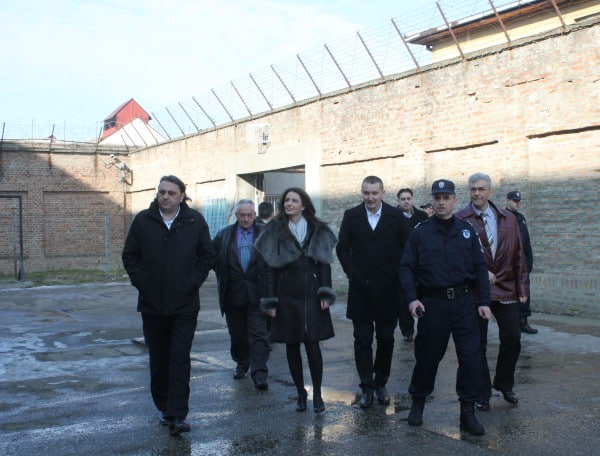
JT: What is the status of relations between Serbia and the European Union in terms of Justice, in general, and in criminal matters, in particular? And how can the country benefit from cooperation with European Union states?
NK: We are receiving significant support in implementing our judicial reform from international partners and institutions, such as the European Union, the World Bank, the OSCE, etc. The support is received through different projects’ funding, donations, legal aid…
The European Union is one of the greatest and most important partners which has been providing assistance in various forms to not only the Ministry of Justice, but also all other judicial bodies and institutions, to help them achieve their goals.
One of the most important projects for the judicial system and the society at large is EU IPA 2013 – Prevention of and Fight Against Corruption Project. Fight against corruption and organised crime is one of the main priorities of the Serbian Government. An entire sub-chapter of Chapter 23 is dedicated to this matter.
In line with the implementation of the measures and the activities defined in that sub-chapter, at the end of 2016, Serbia passed a new law on the organisation and competencies of government authorities in fighting organised crime, terrorism and corruption. Additionally, we have also adopted amendments to our Criminal Code which introduced seven new types of commercial and financial crimes.
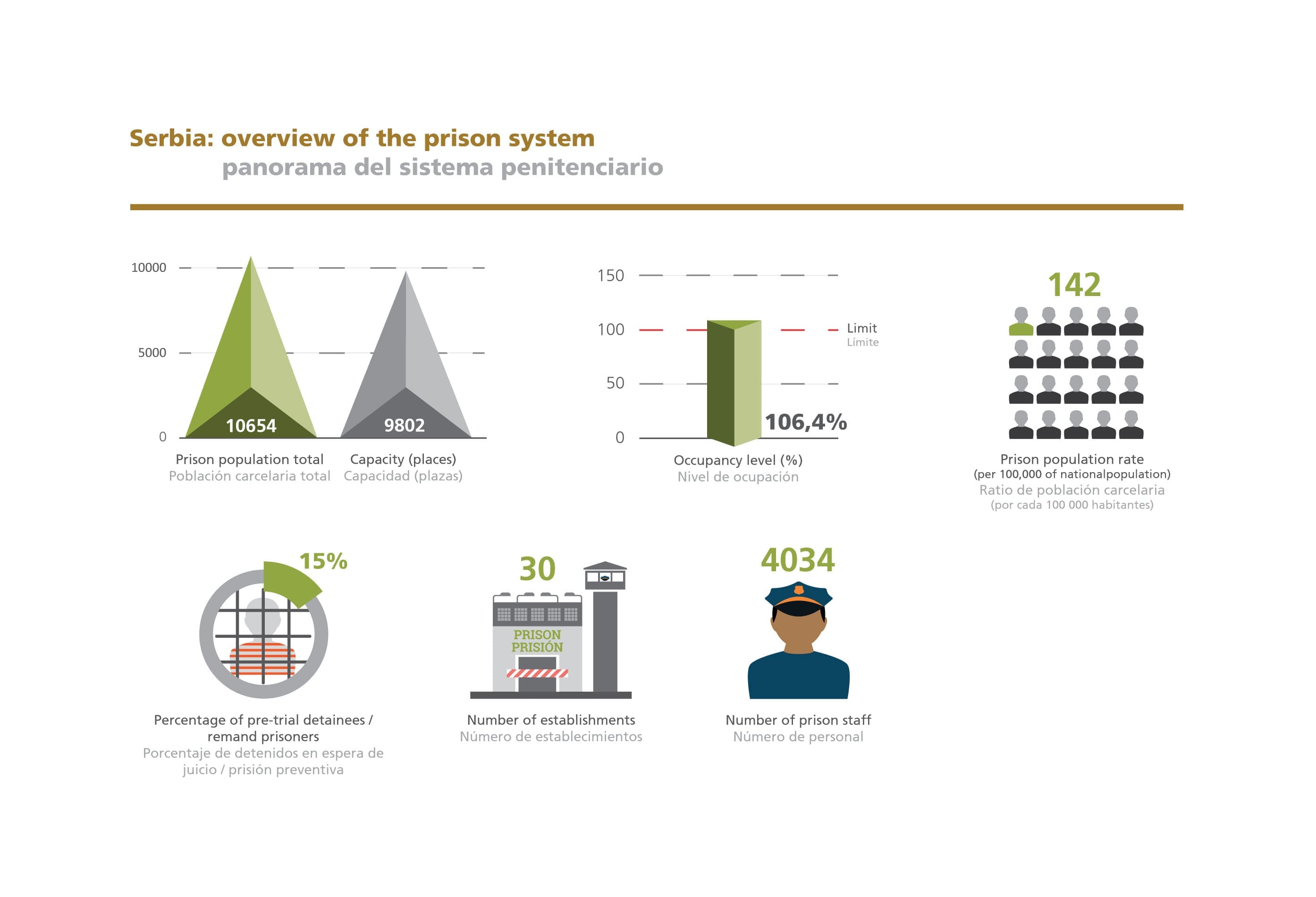
New legislative solutions bring novelties to the ways in which courts and prosecutors’ offices are organised and conducted. After March 1st 2018, special teams – a “task force” – will be formed in four high prosecutors’ offices, which will exclusively address corruption cases.
Since the law prescribes a complete re-organisation of the judiciary and capacity-building of the judicial bodies, a transition period has been allocated between its adoption and the enforcement date, so that the system grows ready for an effective transition. This mostly involves the training of judges, prosecutors, and police officers. This preparation for the start of the application of the new law and the establishment of new criminal offences in our Criminal Code will only be possible due to the EU IPA 13 project.
In terms of the penal sanctions enforcement system, we also started implementing a new and large EU twinning project a few months ago. The project is called “Improving Capacities And Capabilities Within The Prison System” and it will really help us to implement activities defined by the Action Plan for Chapter 23. As a part of the project, there will be training courses on the application of specialised programs of treatment of convicted persons and vulnerable categories of convicts (minors, mentally disabled, addicts, women, persons with special needs, elderly).
To reduce the likelihood of re-offending, special attention will be paid to education and capacity-building towards employment, to the enhancement of the professional skills of female prisoners, so that we can increase their opportunities of employment after serving their sentences.
Additionally, prisons’ security and medical staff will also receive training. At the end of this project, the Training Centre of the Administration for the Enforcement of Penal Sanctions will continue to provide training to all prison units’ staff, in line with an advanced work methodology and new training programmes.
Moreover, the development and the strengthening of an alternative penal sanctions system have been supported by the EU through the procurement of electronic surveillance equipment. This particular project has successfully advanced our alternative sanctions system, the methods of work, and it has increased the capacities of the Probation Service.
The prison system is the third hoop in the chain of society’s protection, it’s as important as the police or the army.
JT: As Justice Minister, what are the things that you decisively want to do during your tenure?
NK: Serbia has undoubtedly opted for the path of joining the European Union, and this primarily implies the harmonisation of our legal framework with the EU Acquis [note] The accumulated body of EU law and obligations from 1958 to date.[/note] , with the Rule of Law being one of our priorities.
The promotion of the Rule of Law in the wide sense has been defined through the measures of the Action Plan for Chapter 23. They include the strengthening of judicial independence and efficiency, the promotion of human rights, and a systematic fight against corruption and crime.
However, I personally find that one of the Justice Ministry’s most important tasks is to reduce the length of court proceedings and to guarantee every citizen of this country the right to a fair trial. We must regain the citizens’ trust in the judiciary and that, for me as the Justice Minister, will represent one of the greatest challenges in the upcoming period.
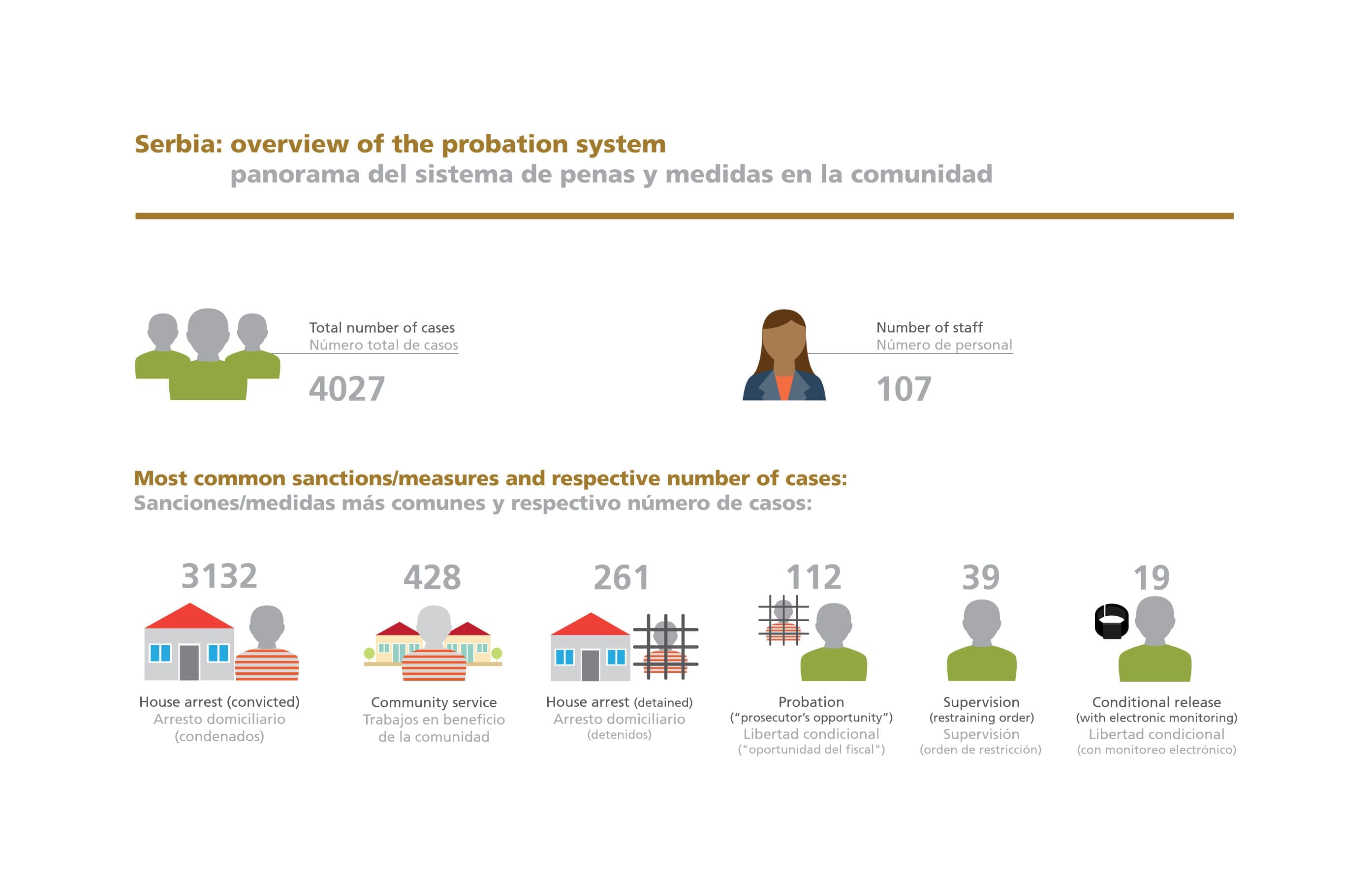
//
Nela Kuburović serves as Minister of Justice in the Government of Serbia since August 2016. Before this appointment, she was Deputy Minister of Justice. She holds a degree in Law by the University of Belgrade; from 2006, she worked as an assistant judge in the First Belgrade Court and was a clerk in the Ministry of Justice between 2008 and 2009. Then she moved to the High Council of Judiciary, as part of the Department of Legislation, and, from 2013, as Head of the Department of the Status of Judges in the Administrative Office of the High Court Council.

